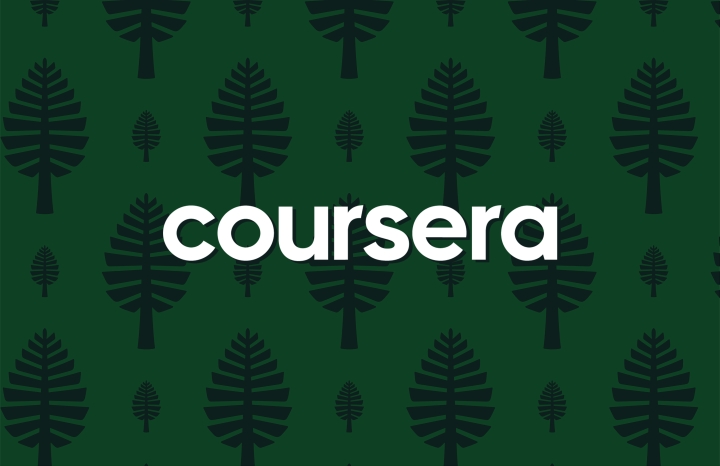Dartmouth is expanding its digital learning offerings through a new partnership with the online learning platform Coursera.
Faculty and staff from across campus—including Thayer School of Engineering, the Arthur L. Irving Institute for Energy and Society, Tuck School of Business, and the Faculty of Arts and Sciences—are developing six not-for-credit Dartmouth-Coursera courses on a range of subjects, from energy equity to web development.
“Dartmouth’s partnership with Coursera is a new avenue for our extraordinary faculty to make their expertise accessible to broader audiences—and for faculty and staff to experiment with new methods of teaching and learning that will pay dividends in the in-person classroom,” says Interim Provost David Kotz ’86.
The first program, a stand-alone course called Energy Justice: Fostering More Equitable Energy Futures, launched on Nov. 20. The interdisciplinary course is a collaboration between the Irving Institute and arts and sciences departments and includes perspectives from a range of fields, including anthropology, history, and environmental and political sciences. It is targeted toward empowering learners to take action. Participation in the course is free; an option to take graded assessments to receive a completion certificate from Coursera is available for a fee.
Digital Transformation—a course developed with the Thayer School of Engineering that will provide skills to manage organizational change in an evolving digital world—will begin on Jan. 17. In this six-month, four-course program, students enroll as a cohort and receive a certificate of successful completion. Enrollment is now open; the deadline to sign up is Jan. 10. There is a fee for enrollment.
Later in 2022, Dartmouth-Coursera will launch a series of four-course non-certificate specialization programs—available for a monthly subscription fee through Coursera—that students may pursue at their own pace. These include “Full Stack Web Development,” a collaboration between arts and sciences faculty and the Digital Applied Learning and Innovation (DALI) Lab; and three business programs offered by Tuck faculty: “Strategic Leadership: Impact, Change, and Decision Making for Work and Life,” “Go to Market: Strategic Choices for the Success of Your New Product,” and “Strategic Innovation.”
The partnership with Coursera is Dartmouth’s latest foray in the digital learning sphere, says Joshua Kim, director of online programs and strategy. In 2015, Dartmouth launched its first open, online course in conjunction with the edX platform, and to date has produced more than a dozen free, non-credit DartmouthX courses through the online learning platform, in subjects ranging from environmental science and the intersection of neuroscience and philosophy to Italian opera and the poetry of John Milton.
Dartmouth’s relationship with edX is ongoing as the institution expands into other platforms. Coursera, with approximately 80 million users worldwide, promises to expand Dartmouth’s reach, Kim says. But while the programs will help make faculty expertise accessible to a larger audience, there are also tangible benefits for students and faculty on campus.
“The goal with all of our online programs is to advance learning at Dartmouth,” Kim says.
A Team Effort
Faculty work with a team of instructional designers from Information, Technology & Consulting (ITC) and the Dartmouth Center for the Advancement of Learning—experts in the science of learning and educational technology—to adapt content for the digital environment, says Erin DeSilva, interim senior director of digital learning and innovation in ITC. “When faculty develop content for an online or asynchronous environment, it changes how they teach.”
DeSilva says the work to develop online learning strategies with edX and in Dartmouth’s blended-learning master’s degree programs over the past decade helped when the COVID-19 pandemic forced Dartmouth to shift from in-person to remote learning almost overnight.
“What we knew about online learning going into the pandemic was how to think about student engagement—how students interact with course content, with the instructor, and with each other,” she says. “These were the three things that faculty had to name and be able to describe to their students early in order for their remote classes to be successful.”
Likewise, DeSilva says, the experience of teaching remotely pushed faculty and instructional designers to develop innovative ways of assessing student learning—from developing tailored group projects to integrating individual reflection into the course work.
DeSilva sees Coursera as a means of continuing to innovate. “I am excited about what we are learning from this partnership,” she says.

